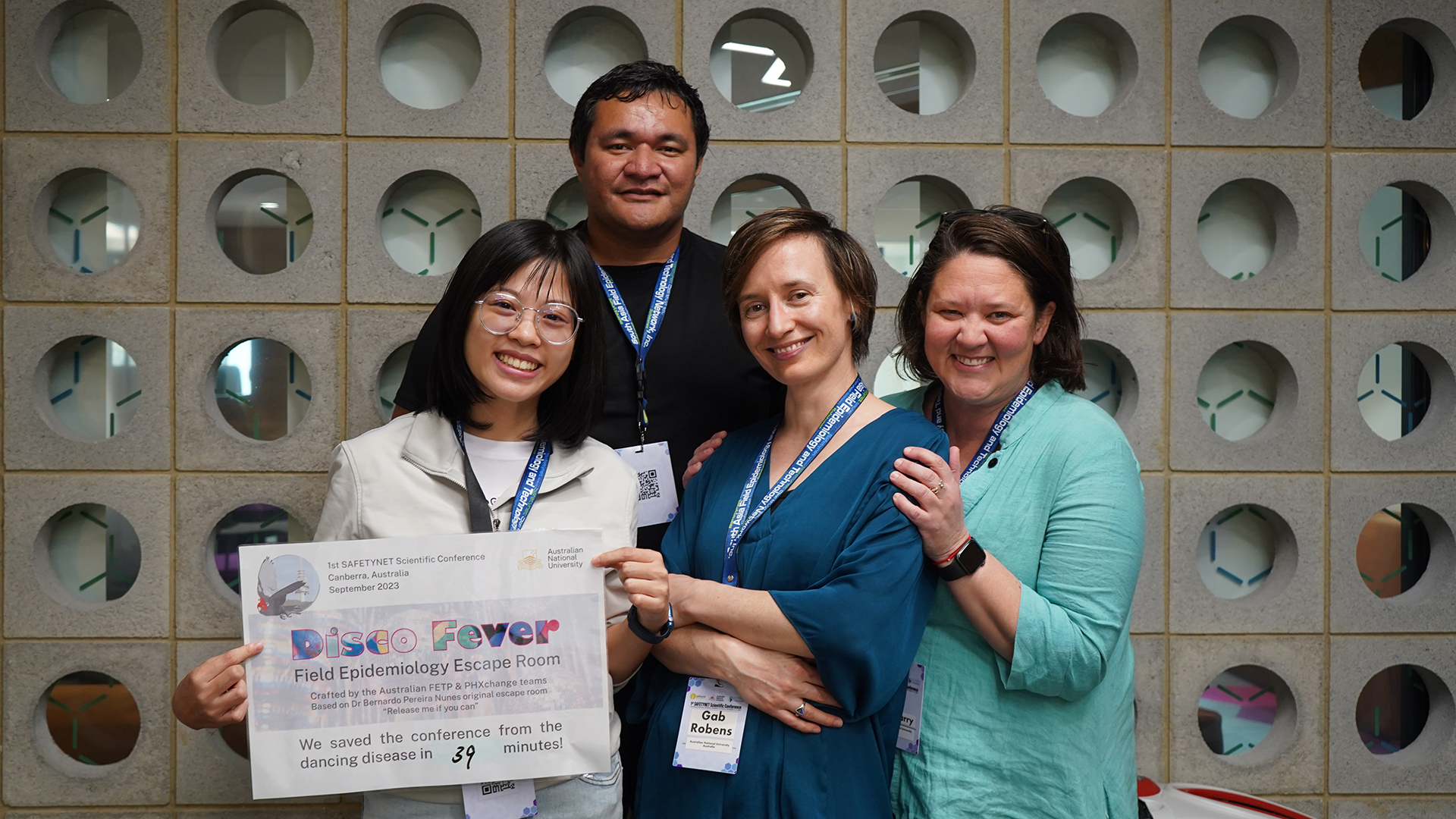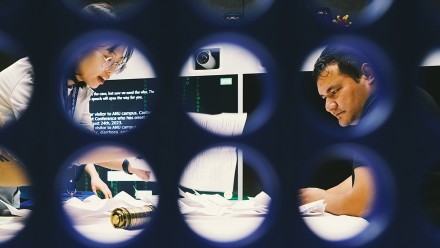Escape Rooms to unlock learning potential across campus
Share
Teaching and learning isn’t just about book-smarts. It’s about problem solving and team work—and that’s exactly what researchers from ANU want to encourage through a $65,000 Strategic Learning and Teaching grant facilitating the creation of new Escape Rooms across the university.
“Through this grant, we will create an Escape Room Hub and host workshops to help other educators design their own Escape Room, says Research Fellow and grant co-investigator Guddu Kaur, “We will also share lessons learnt from our own Escape Room experience, show educators how to make puzzles that get the most out of the learning experience, and demonstrate what you can do on a shoestring budget.”
This grant* follows two extremely successful Escape Rooms on campus—one in computer science designed by Dr Bernardo Pereira Nunes, the project lead and originator of the ANU Escape Room experience, and another with a field epidemiology themed experience crafted by Kaur and her colleagues at the National Center for Epidemiology and Population Health.
“Escape rooms are commonly thought of as a fun but engaging past time involving a series of riddles and puzzles to be solved in order to ‘escape’ from the room itself. We used that same logic for epidemiology, because what are outbreaks if they aren’t just puzzles to be solved?” says Kaur.
In this case the Escape Room involved a mysterious disease outbreak causing victims to dance with disco fever. Participants had to determine the pathogen, and where and when the outbreak started.
“We developed a series of riddles by starting with an epidemiological principle or concept, working out how it could fit with the story, and then implementing it with a tactile element that people could physically engage with,” says Dr Erin Walsh, who helped design and implement the epidemiological themed Escape Room on campus.
This ‘Disco Fever’ Escape room was featured at the 1st South Asia Field Epidemiology and Technology Network Scientific Conference this September, engaging 39 participants from all across the globe.

NCEPH researcher Dr Amy Parry (on the right) celebrates with Escape Room participants who successfully escaped from the room in the final minutes. Image: Calo Huang
“It was great to see people searching the room, enjoying the story and problem solving. The highlights were sparks of insight when players recognised the underlying epidemiological concepts, and the solutions fell into place for them,” says Walsh.
These sparks of interest and engagement encourage students to take a more hands-on and practical approach to their learning. Dr Amy Parry, Department of Applied Epidemiology Head and grant co-investigator, agrees:
“Epidemiology ‘field-skills’ such as leadership, communication, and teamwork, are hugely important during emergency response. Using Escape Rooms as a learning tool, provides trainees with simulated real-life high pressure time limited scenario and encourages testing of field-skills in a safe learning environment,” says Parry.
The Escape Room concept can be applied to a range of subjects and education opportunities. If you want to learn more about incorporating Escape Rooms and puzzles into your teaching and learning, or join the Escape Room Hub, please contact Guddu Kaur and/or Amy Parry.
*This Strategic Learning and Teaching grant was won in collaboration with colleagues from the College of Engineering, Computing and Cybernetics (find out more about their Escape Room experience on advance computing concepts here), the College of Arts and Social Sciences, and Information and Technology Services.










